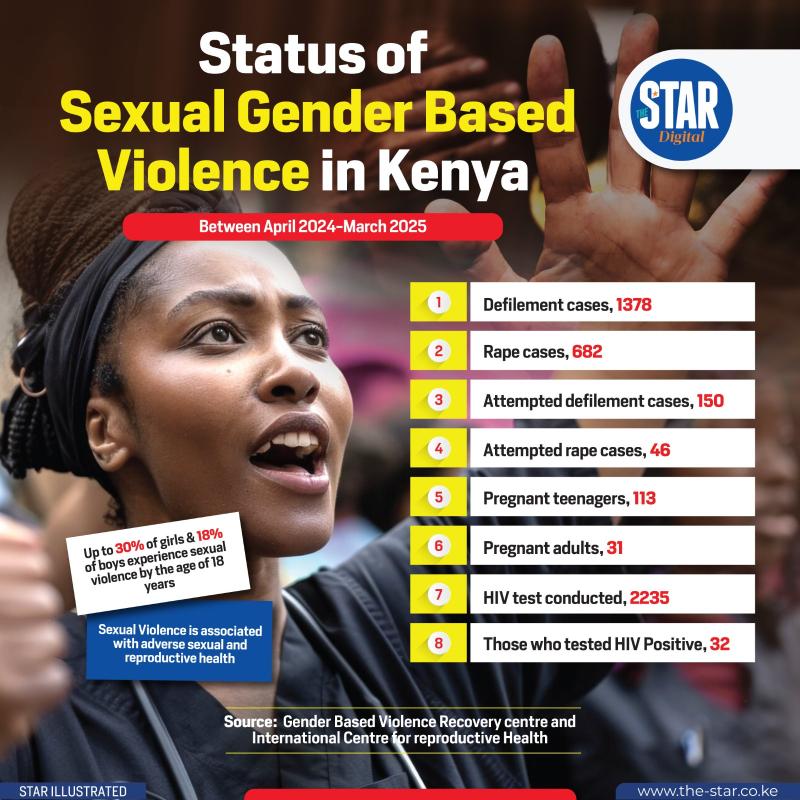
 Status of sexual gender based violence in Kenya/FILE
Status of sexual gender based violence in Kenya/FILE A new UN report has warned that funding cuts are pushing women’s rights organisations in Africa and around the world to the brink.
This is threatening decades of progress in the fight to end violence against women and girls.
The report shows one in three organisations has suspended or shut down programmes due to financial shortfalls, leaving more survivors without support and increasing the risk of violence.
The 'At Risk and Underfunded' report is based on a global survey of 428 women’s rights and civil society organisations and shows that one in three groups working to address violence against women has been forced to suspend or close programmes due to lack of funding.
The findings reveal that as services shrink and advocacy efforts weaken, more women are being left at risk.
According to the report, more than 40 per cent of organisations have scaled back life-saving services, including shelters, legal aid, psychosocial care and healthcare support.
Nearly 80 per cent reported reduced access to essential services for survivors, while 59 per cent said impunity and normalisation of violence is increasing.
“Women’s rights organisations are the backbone of progress on ending violence against women. Yet they are being pushed to the brink,” said Kalliopi Mingeirou, chief of the Ending Violence Against Women and Girls section at UN Women.
“We cannot allow funding cuts to erase decades of hard-won gains. We call on governments and donors to ringfence, expand and make funding more flexible. Without sustained investment, violence against women and girls will only rise.”
In Kenya, cases of gender-based violence and femicide have surged, prompting calls for stronger legal and community interventions.
Mary Wanjiru, team lead for Ending Violence Against Women and Girls at UN Women Kenya, said the rising killings of women and girls demand, a strong whole-of-society approach to safeguard their safety, justice and protection.
She said recommendations to the Technical Working Group on Gender-Based Violence and Femicide aim to strengthen institutional, policy and legal responses across the country.
Data from the 2022 Kenya Demographic and Health Survey (KDHS) shows that 10.4 per cent of women aged 15–49 have experienced sexual violence and more than 40 per cent have experienced intimate partner violence in their lifetime.
Analysis of femicide cases between 2016 and 2023 indicates that 75 per cent of victims were killed by someone they knew, often an intimate partner.
Alberta Wambua, co-chairperson of the Kenya National Gender-based Violence Working Group, pointed out the need for stronger coordination of prevention and response, survivor-centred justice systems and increased funding to sustain services.
Globally, violence against women and girls remains one of the most widespread human rights violations.
Nearly one in three women, an estimated 736 million, have experienced physical or sexual violence, most often from an intimate partner. In 2023, an average of 140 women or girls were killed every day by someone within their family.
The report warned that most women-led organisations are now struggling to survive: only five per cent expect to remain operational for more than two years without new funding.
Meanwhile, a growing backlash against women’s rights is reported in at least one in four countries.
“Funding shortfalls are happening alongside a backlash against women’s rights,” Mingeirou said.
“As organisations lose funding, many are forced to focus only on
basic services, instead of the sustained advocacy needed to drive long-term
change.”














